
Transcription
Reply ID: 7uqk
3-1-13
Dear Susan,
Please forgive my delay in responding to your comments. I have been moved to another prison, and the process is a hectic one.
Your comments on public safety and complex social systems are both thoughtful and compassionate. They reflect the mind of someone who has given much time to considering the whole picture. This being human in a human society is hard for EVERYONE, and too complex to waste time focusing on blame.
I just sent in a post on mindfulness and rehabilitative programs. My hope is that we start recognizing that people who do "bad" things do so because they don't have the skills to address the issues they face. Whether those skills be mental, emotional, or vocational, it is my belief that an overwhelming environment - social, familial, communal - and a lack of skills to cope with that environment is the root cause of much dysfunctional behavior. In addition, most people living in prisons or addicted to drugs or leading dysfunctional lives also have experienced extreme emotional trauma and were raised in extreme situations. Many of us also suffer from a poor education [I have a 6th grade education]. This in combination with a lack of healthy coping skills is a recipe for dysfunction. It is true that many people have grown up in extreme situations and HAVEN'T become dysfunctional, but I would argue that such people also had someone supportive and encouraging in their lives or they were fortunate enough to have participated in some exceptional programs that taught them the skills they needed in order to do well.
Rather than seeing dysfunctional behavior as evidence of a person's lack of "goodness", as signs of a "bad seed", I would like to offer this idea: All dysfunctional behavior is merely an unskilled attempt at gaining happiness or at gaining relief from suffering. If the person BELIEVED he or she could get their needs met in a better way they would have done so.
This being the case, the punishment model makes no sense. In fact, it reflects an uninformed, out of touch mind-set that isn't all that well-equipped to face life from a 21st century perspective.
We have the science and the programs to help those who struggle with difficult lives and a lack of coping skills. It's time we make use of them. Not everyone WANTS help, and no program will rehabilitate everyone, but it isn't about perfection, as they say, it's about progress.
I'll be starting a new blog soon, but it will remain at this web address. This blog will feature shorter posts on living a mindful life in prison. I'll be posting more often and with posts only 1-3 pages long. Let me know what you think. Any posts you enjoy, maybe you could consider transcribing it and emailing it to friends who might be interested.
Take care, Susan.
May Awareness be your home
and Peace be your guest.
Daniel
New mailing address:
Daniel Labbe W85867
PO Box 43
Norfolk, MA 02056
:)
Peace
Other posts by this author
|
2016 aug 4

|
2016 jun 25

|
2016 jun 9
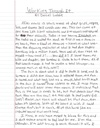
|
2016 may 5
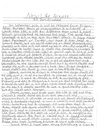
|
2016 mar 11
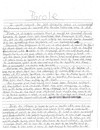
|
2016 feb 7

|
More... |

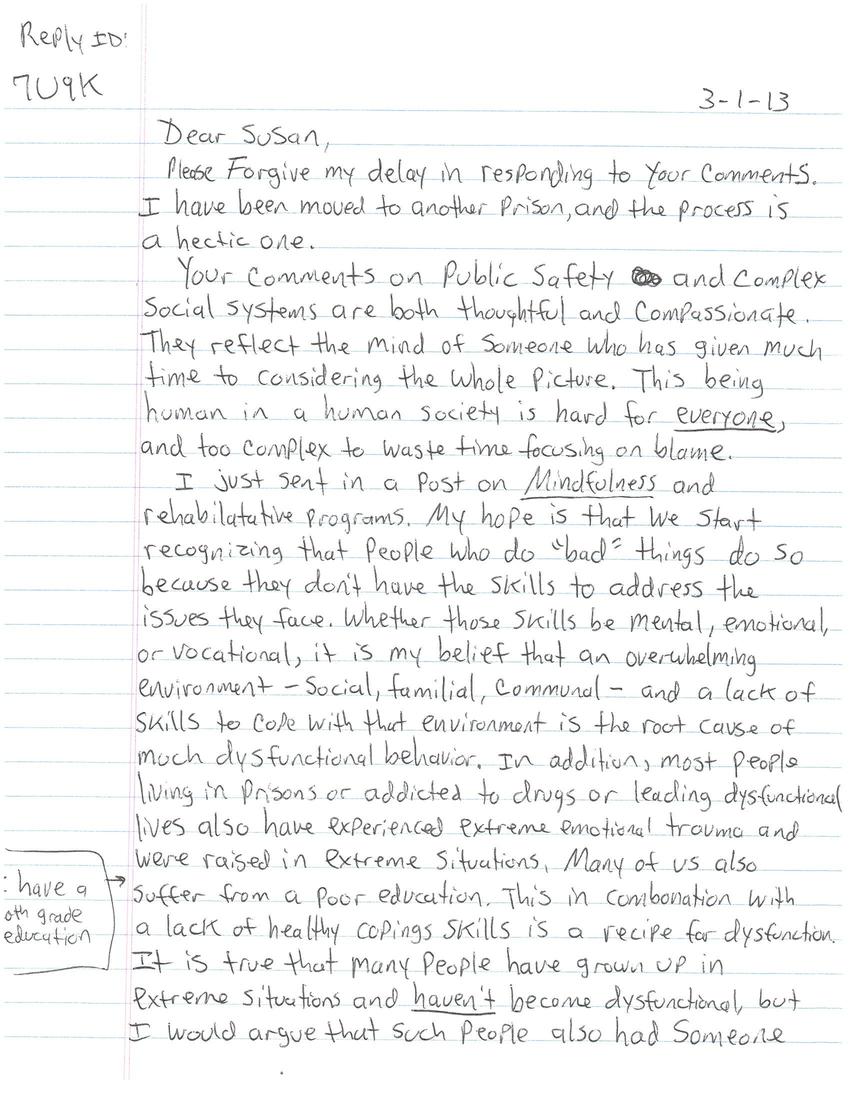
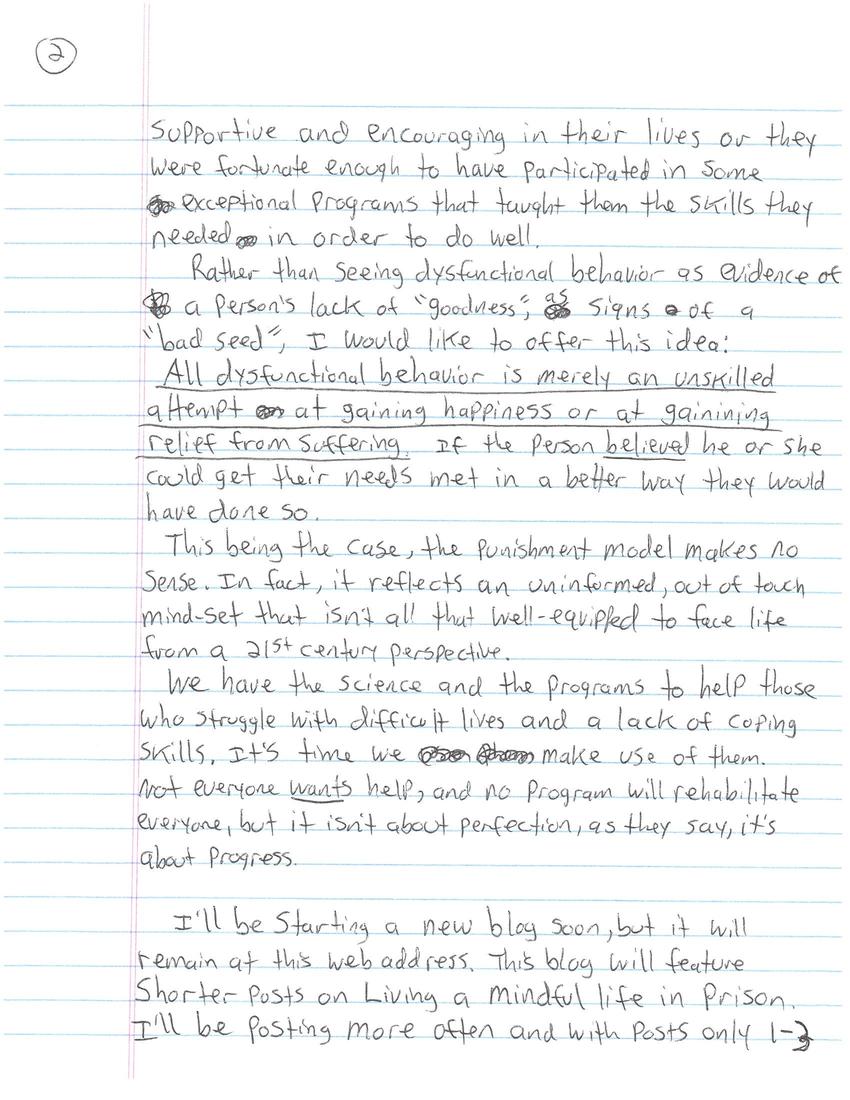
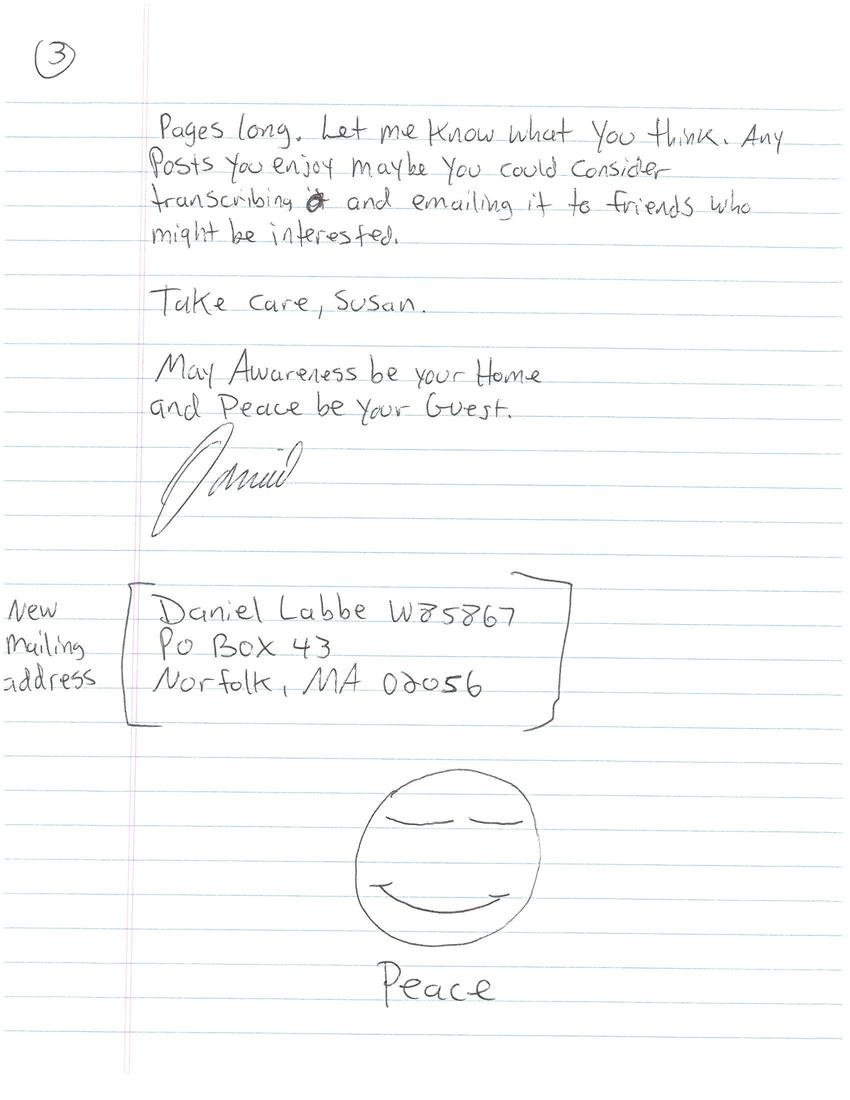

Replies (3)
Such a philosophy of reform would rest on the understanding that humans are capable of appropriating their own development. This is the one thing that distinguishes us as animals. It may be incredibly difficult to understand oneself and by extension human nature, but the research is out there. It is in our policies and our prejudices that are yet unwilling to give - not forgive. 'To forgive' is so common a mantra delivered to those wronged by, but it's misleading for many, ultimately serving to undermine their capacity for compassion. What we want is change, for nobody else to feel the hurt that we feel. In order for that to happen we must allow those who have wronged the time and space to learn.